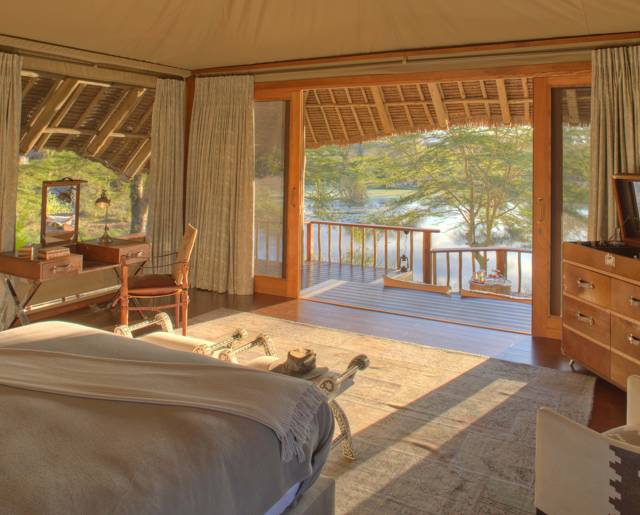India’s luxury hospitality sector is experiencing a transformative boom, fueled by the rising affluence of high-net-worth individuals (HNWIs), growing corporate travel, and an increasing preference for exclusive, immersive experiences. Post-pandemic recovery has accelerated this growth, with the market projected to expand at a compound annual growth rate (CAGR) of 8.92% between 2023 and 2029, reaching a valuation of USD 51.11 billion, according to industry reports.
Leading this evolution are brands like Sheraton Grand Bengaluru Whitefield Hotel & Convention Center and Grand Mercure Bangalore, which are reshaping the luxury hospitality landscape with personalised services, state-of-the-art facilities, and tailored guest experiences. To explore the market sentiment and the demand for luxury hospitality among HNWIs and Indian travelers, Asmita Mukherjee spoke with industry leaders to understand the market sentiment.
The Rising Demand for Luxury
 “India’s luxury hospitality market is experiencing dynamic growth,” says Varun Mehrotra, Director of Sales and Marketing at Sheraton Grand Bengaluru Whitefield Hotel & Convention Center. “Bengaluru, as a tech powerhouse and cosmopolitan hub, is seeing a surge in demand for luxury stays that blend sophistication with tailored services. Sheraton Grand is perfectly positioned to meet these needs, offering world-class amenities, cutting-edge convention facilities, and culturally immersive experiences.”
“India’s luxury hospitality market is experiencing dynamic growth,” says Varun Mehrotra, Director of Sales and Marketing at Sheraton Grand Bengaluru Whitefield Hotel & Convention Center. “Bengaluru, as a tech powerhouse and cosmopolitan hub, is seeing a surge in demand for luxury stays that blend sophistication with tailored services. Sheraton Grand is perfectly positioned to meet these needs, offering world-class amenities, cutting-edge convention facilities, and culturally immersive experiences.”
This demand is mirrored in other metro cities like Mumbai, Delhi, and Hyderabad, where a growing number of affluent domestic travelers are seeking exclusive stays. Additionally, destinations like Goa, Rajasthan, and Kerala cater to leisure travelers looking for unique, personalised getaways.
 Rahul Jadav, Director of Sales and Marketing at Grand Mercure Bangalore, emphasises the role of ‘bleisure’ travel in driving demand. “The convergence of business and leisure has reshaped expectations. Guests now seek impeccable business amenities alongside indulgent leisure experiences. It’s about creating value that goes beyond the traditional hotel stay,” he explains.
Rahul Jadav, Director of Sales and Marketing at Grand Mercure Bangalore, emphasises the role of ‘bleisure’ travel in driving demand. “The convergence of business and leisure has reshaped expectations. Guests now seek impeccable business amenities alongside indulgent leisure experiences. It’s about creating value that goes beyond the traditional hotel stay,” he explains.
Average Room Rates on the Rise
The luxury segment’s growth is evident in the steady increase in Average Room Rates (ARRs). According to Malhotra, ARRs in the upscale luxury segment have grown by 5-8% from FY2024 to FY2025, fueled by the resurgence of business and leisure travel. Premium hotels in key cities like Bengaluru are now reaching or surpassing pre-pandemic rate levels.
Jadav adds, “At Grand Mercure Bangalore, we’ve seen a remarkable 30% increase in ARRs compared to pre-COVID levels. This aligns with industry data indicating ARRs across India’s premium hotels now range between INR 7,200–INR 7,400, with projections reaching INR 8,000 in FY2025.”
The recovery is supported by major international events such as the G20 Summit and ICC World Cup, which have driven higher occupancy rates and stronger demand. Despite some softening in leisure destinations like Goa, overall market conditions remain robust, with a compounded growth in room nights at 7.2% and RevPAR growth at 7.8% over the past five years.
What Guests Want: Personalisation and Purpose
The evolving preferences of luxury travelers are reshaping the hospitality landscape. “Guests today are seeking meaningful, personalised experiences,” says Jadav. “At Grand Mercure Bangalore, where 24% of our business comes from long-staying guests, we focus on blending world-class amenities with local cultural immersion to ensure an unforgettable stay.”
Sheraton Grand Bengaluru Whitefield, too, has adapted to these trends by offering bespoke concierge services, exclusive culinary experiences, and advanced wellness programs. “Luxury is no longer just about opulence,” says Mehrotra. “It’s about exclusivity, personalisation, and sustainability. At Sheraton Grand, we’ve integrated eco-friendly initiatives and high-tech amenities to cater to the modern luxury traveller.”
A Growth Trajectory Backed by Market Dynamics
The projected USD 51.11 billion valuation for the luxury hospitality market by 2029 underscores the sector’s immense potential. This growth is driven by rising disposable incomes, the expansion of domestic and international tourism, and the increasing demand for experiential travel.
“India’s affluent travelers are no longer looking abroad for high-end experiences,” says Jadav. “With the market projected to grow from USD 2.72 billion in 2024 to USD 4.39 billion by 2029, there is significant room for innovation and elevation of guest experiences.”
Mehrotra adds, “Bengaluru’s business tourism and MICE activities, coupled with the city’s attraction for high-net-worth individuals, make it a focal point for luxury hospitality. Our focus on sustainable luxury and culturally immersive offerings ensures that we’re well-positioned to capture this demand.”
Challenges and Opportunities
While the luxury segment is thriving, challenges persist. The need for sustainable practices, rising competition, and evolving consumer expectations require hotels to continually innovate. Both Malhotra and Jadav agree that the future of luxury hospitality lies in creating unique experiences that combine luxury with purpose and authenticity.
“At Sheraton Grand, we believe in staying ahead of the curve,” says Mehrotra. “Whether it’s through advanced wellness programs, technology integration, or sustainability initiatives, our goal is to provide experiences that resonate with today’s discerning traveler.”
Jadav echoes this sentiment. “As travellers prioritise wellness, sustainability, and personalisation, it’s essential to adapt. Grand Mercure Bangalore is committed to these values, ensuring that every guest leaves with lasting memories.”


